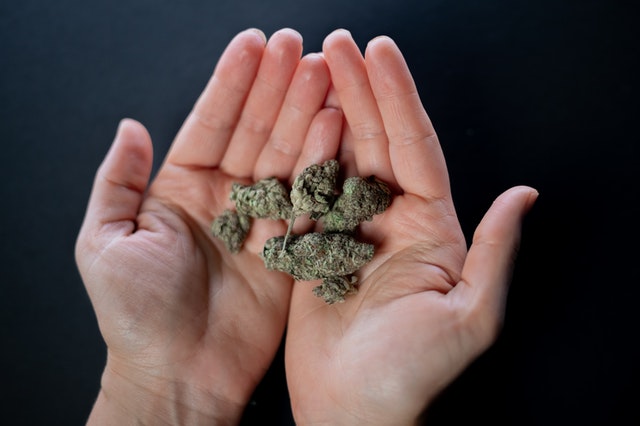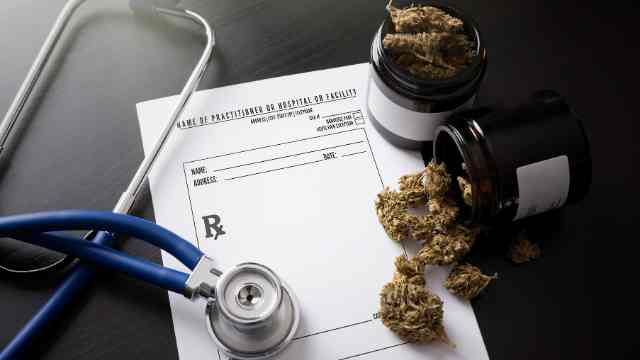
Medical marijuana has been a topic of heated debate and widespread misunderstanding.
Despite the growing acceptance and legalization in various parts of the world, several myths continue to cloud public perception and understanding.
This article aims to clarify some of the most common misconceptions about medical marijuana, providing a clearer picture of its uses, effects, and potential. Keep reading to learn more!
Misconception 1: Medical Marijuana Is Just an Excuse to Get High
One of the most prevalent myths is that medical marijuana is merely a cover for people who want to use cannabis recreationally.
However, medical marijuana is prescribed to alleviate symptoms of various medical conditions, not for recreational use. It contains cannabinoids like THC (tetrahydrocannabinol) and CBD (cannabidiol), which are known for their therapeutic properties.
THC can help with pain and nausea, while CBD is praised for its anti-inflammatory and anti-anxiety effects.
Doctors prescribe medical marijuana in controlled doses, similar to any other medication. The goal is to manage symptoms while minimizing psychoactive effects. For many patients, medical marijuana provides relief when traditional medications fail or cause intolerable side effects.
Misconception 2: Medical Marijuana Is Addictive
While it's true that marijuana can be addictive for some, the risk of addiction is often overstated, especially when compared to opioids, which are commonly prescribed for pain management.

The National Institute on Drug Abuse states that the percentage of people who develop a marijuana dependency is relatively small. Plus, the potential for addiction tends to be higher in recreational use rather than medical use, where dosages and frequency are strictly managed.
Misconception 3: There’s No Real Evidence That Medical Marijuana Works
Another common misconception is the claim that medical marijuana lacks scientific support. On the contrary, numerous studies have demonstrated the medicinal effects of marijuana.
For example, it has been approved to treat a range of conditions, including chronic pain, nausea related to chemotherapy, multiple sclerosis, and epilepsy.
The FDA has approved medications containing synthetic cannabinoids, like dronabinol and nabilone, and a CBD-derived drug, Epidiolex, for treating certain types of epilepsy.
Research is ongoing, and as marijuana becomes less stigmatized, more resources are likely to be allocated to studying its potential in various medical scenarios.
Misconception 4: Medical Marijuana Is a Gateway Drug
The gateway drug theory suggests that using marijuana can lead individuals to experiment with harder drugs. However, this theory has been largely debunked by scientific research.
Most medical marijuana users do not move on to use stronger substances. In fact, some studies suggest that medical marijuana can act as a "terminal" drug, helping users to manage symptoms and potentially reduce the use of other more addictive substances, particularly opioids.

Misconception 5: Medical Marijuana Causes Mental Health Problems
There is a concern that marijuana use can lead to mental health issues, such as schizophrenia or depression.
While there is evidence suggesting that high doses of recreational marijuana could exacerbate symptoms in vulnerable individuals, the use of medical marijuana under professional guidance is considered relatively safe.
It is important for physicians to assess the patient’s history and predispositions before prescribing marijuana. The therapeutic use of cannabis is tailored to avoid negative psychological effects by controlling the strains, dosage, and method of consumption.
Misconception 6: Smoking Is the Only Way to Use Medical Marijuana
Smoking marijuana is the most recognized method of consumption, but it's not the only way. Medical cannabis can be ingested in several forms, including vaporizers, pills, oils, edibles, and topical applications like creams and balms.
These methods provide alternatives for patients who may be concerned about the potential harm of smoking or tolerance issues.
Misconception 7: All Physicians Can Prescribe Medical Marijuana
Not all doctors are qualified or legally permitted to prescribe medical marijuana. The regulations and requirements for prescribing cannabis for medical purposes vary significantly by region and country.
Typically, physicians need specific certifications or licenses and need to comply with local medical cannabis laws. Patients looking for medical marijuana treatment should consult with qualified healthcare providers who are authorized to prescribe it.

Misconception 8: Medical Marijuana Causes Brain Damage
The assertion that medical marijuana causes brain damage is a significant concern. Scientific studies, however, do not conclusively support this claim.
While excessive use of marijuana, particularly at a young age, may be associated with certain cognitive impairments, the controlled, medicinal use of cannabis does not exhibit the same risk profile.
Medical use typically involves lower dosages and regulated administration, which helps mitigate potential negative effects on cognitive function.
Misconception 9: Medical Cannabis Products Are All the Same
A common misunderstanding is that all medical cannabis products are identical. In reality, there is a wide variety of products, each with different ratios of THC to CBD, as well as other cannabinoids that play roles in their effects.
These products are designed to cater to specific symptoms and conditions, providing patients with options that best meet their medical needs. Understanding the diverse nature of these products is crucial for both patients and healthcare providers to choose the most appropriate treatment.
Misconception 10: Medical Marijuana Doesn’t Have Side Effects
Like any therapeutic drug, medical marijuana comes with potential side effects, which can vary depending on the individual, the dosage, and the method of consumption.
Some patients may experience dry mouth, dizziness, altered mental states, or mood changes. It's important to discuss these potential effects with a healthcare provider, who can help manage and mitigate them.
Conclusion
The myths surrounding medical marijuana are gradually being dismantled as more research illuminates its therapeutic potential.
Understanding what medical marijuana is—and what it isn't—is crucial for patients, healthcare providers, and lawmakers to make informed decisions about its use in a medical context.
As with any treatment, education and awareness are key to debunking myths and acknowledging the legitimate medical uses of cannabis. If you have questions, call Malie Cannabis Clinic and we’ll be happy to help you.